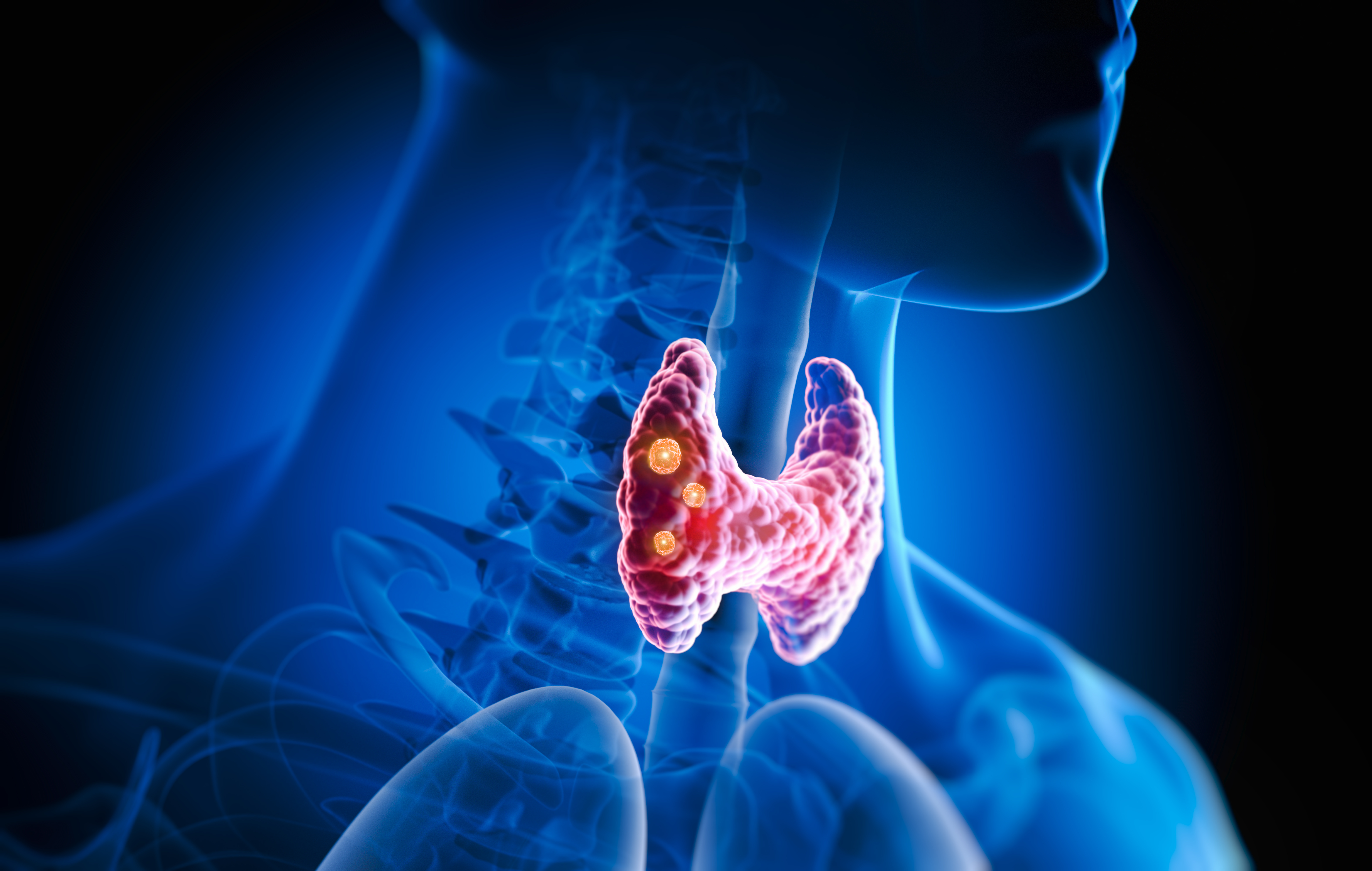Autoimmune disease affects approximately 7-9% of the global population, though recent studies show a steady increase in cases, with incidence rates rising by 3-12% annually depending upon the condition.1 But did you know that of the estimated 24-50 million Americans diagnosed, 80% are women? This means that 4 out of every 5 individuals living with an autoimmune condition are female.2 The scientific community has long been aware of the disparity in autoimmune disease prevalence between men and women. In recent years, however, research has begun to uncover several key factors contributing to this imbalance, such as hormonal influences, genetic differences, and variations in immune system function—all of which increase women’s susceptibility to autoimmune conditions.
What is Autoimmunity?
Before we take a deep dive into the top factors that make women more susceptible to autoimmunity, let's look at what exactly autoimmunity is, as well as which conditions tend to be more prevalent for women. A simplified explanation of autoimmunity generally refers to a condition where the body’s immune system mistakenly attacks itself. While the exact mechanism of each autoimmune condition is not entirely understood and can vary, a common factor is the immune system's failure to recognize the body’s cells as "self." Normally, the immune system can distinguish between the body’s tissues and foreign invaders like bacteria and viruses. However, this process breaks down in autoimmune diseases, and immune cells called T-cells or antibodies mistakenly target normal, healthy tissues as if they were harmful invaders.
This disruption in immune function can manifest in various ways, depending on which tissues or organs are affected. For instance, in Hashimoto’s thyroiditis, the most common autoimmune disease in the United States and the leading cause of hypothyroidism, the immune system attacks the thyroid gland, leading to inflammation and gradual destruction of thyroid tissue. This impairs the gland's ability to produce thyroid hormones, resulting in hypothyroidism. Symptoms can include fatigue, weight gain, brain fog, cold intolerance, hair thinning, constipation, and depression.
In rheumatoid arthritis, the immune system attacks the joints, causing inflammation and damage. This leads to symptoms such as joint stiffness, swelling (particularly in the hands, wrists, and knees), and over time, joint deformities. These changes can result in chronic pain, reduced mobility, and impaired function, significantly impacting daily activities and quality of life.
.jpg?width=1992&height=1505&name=Women%20AI%202%20(for%20In%20text).jpg)
There are over 100 types of autoimmune diseases that predominantly affect women. The top ten conditions in order of prevalence are Hashimoto’s thyroiditis, rheumatoid arthritis (RA), systemic lupus erythematosus (Lupus), Grave’s disease, multiple sclerosis (MS), Sjogren’s syndrome, scleroderma, psoriasis, inflammatory bowel diseases (Crohn’s disease & ulcerative colitis), and type 1 diabetes. Among these, Hashimoto’s thyroiditis and systemic lupus erythematosus (SLE) stand out for their strong gender disparity. Hashimoto's thyroiditis affects women significantly more than men, with a female-to-male ratio ranging from 7:1 to 10:1. This means that for every man diagnosed, there are approximately 7 to 10 women affected.3 Lupus, an autoimmune disease where the immune system attacks healthy tissues such as the skin, joints, kidneys, and brain, has been shown to have a staggering 9:1 predominance in women compared to men and is three to four times more prevalent in Black and Hispanic females.4 To better understand this disparity, let’s explore the key factors that increase women’s susceptibility to autoimmune diseases.
Immune System Strength & Responsiveness
Did you know that women generally have a stronger immune system than men? It is believed that both the strength and responsiveness of the female immune system stem from evolutionary factors as well as hormonal influences.
Evolutionary Biology
It is hypothesized that women have an evolutionary tendency to produce much higher levels of antibodies than their male counterparts- an advantage likely evolved to protect women during childbearing years when robust immunity would safeguard both the mother and offspring from infections.5 Antibodies are proteins produced by immune cells that help identify and neutralize harmful pathogens critical for the defense and clearance of infections. However, when antibodies mistakenly target the body’s cells and tissues, they can contribute to the development of autoimmune diseases. Furthermore, research shows that women not only generate higher levels of protective antibodies in response to infections or vaccines but also have more ‘autoantibodies’—antibodies that target their own cells.5 This finding is significant as autoantibodies play a key role in many autoimmune diseases, especially ones that are more female predominant such as Hashimoto’s thyroiditis, Sjogren’s, and lupus. Unfortunately, the stronger production of antibodies tends to be lifelong, with antibody levels peaking during the early decades of life but remaining higher in women compared to men as they age. This enhanced immune activity, while beneficial in defending against pathogens, may increase the likelihood of developing antibody-driven autoimmune conditions.
Sex Hormones
Hormones like estrogen and testosterone also play critical roles in shaping immune system behavior. Estrogen, for example, plays a significant role in immune system regulation as it influences both innate and adaptive immunity through specific receptors found on immune cells like T-cells and B-cells. Estrogen enhances the production and activation of B-cells, leading to an increase in antibody production.6 Research has shown that estrogen boosts inflammation (and production of pro-inflammatory cytokines) while simultaneously suppressing regulatory mechanisms that typically prevent immune overreaction. These effects are particularly evident in conditions like systemic lupus erythematosus (SLE), where estrogen’s activity intensifies the inflammatory response.6 However, it’s important to note that estrogen's impact on autoimmunity is complex and varies depending on the disease and the immune pathways involved.
While estrogen generally enhances immune activity, amplifying the production of B-cells and autoantibodies associated with lupus pathology, estrogen conversely appears to have a protective effect in diseases like multiple sclerosis (MS). With MS, estrogen has been shown to reduce inflammation by shifting the immune response toward anti-inflammatory pathways, such as promoting regulatory T-cells and reducing the activity of pro-inflammatory T-cells (like Th1 and Th17 cells).⁶ While it likely sounds incredibly confusing, the contrasting effects of estrogen seem to be due to the different immune mechanisms driving each disease. While lupus heavily depends on B-cell activity and autoantibody production, processes that estrogen amplifies - MS, conversely, is more associated with T-cell-mediated inflammation, which estrogen can suppress.
But what about testosterone? In contrast to estrogen, which generally enhances immune activity, testosterone, the dominant male hormone, has an immunosuppressive effect. It dampens the activity of immune cells and reduces the production of inflammatory molecules. Testosterone has also been shown to reduce T-cell proliferation and cytokine expression, creating a less aggressive immune response compared to women. So while men are more susceptible to infections and catching common illnesses, like colds or flu (and their symptoms might last longer), this lowers their risk of autoimmune disease.
Hormonal Changes: Menstrual cycles, Pregnancy, & Menopause
Many autoimmune disorders tend to affect women during periods of extensive stress and/or during or after a significant hormonal change: pregnancy, postpartum, peri, or post-menopause. Because hormones like estrogen and testosterone directly affect immune system activity, hormonal fluctuations can significantly influence autoimmune disorders. These fluctuations—such as during pregnancy, postpartum, or menopause—can either amplify or suppress immune responses, altering how the body interacts with its own tissues.
For instance, during pregnancy, high estrogen levels may suppress certain parts of the immune system to protect the fetus, which can temporarily ease autoimmune symptoms like those seen in multiple sclerosis (MS). However, postpartum, when estrogen levels sharply drop, immune activity can rebound, sometimes triggering autoimmune flares. In conditions like lupus, high estrogen levels during certain phases of the menstrual cycle or pregnancy may worsen symptoms or trigger flares. Yet similarly, during the postpartum period, where there is a sudden drop in hormones, can also contribute to flare-ups, highlighting the sensitive relationship between hormone fluctuations and autoimmunity progression.
Menopause introduces another shift: declining estrogen levels may disrupt immune balance, potentially increasing susceptibility to certain autoimmune conditions or altering their progression depending upon the condition, as mentioned above. These hormone-driven changes highlight how the immune system is tightly intertwined with the body’s hormonal environment, explaining why periods of significant hormonal shifts often coincide with autoimmune disease onset, flares, but also sometimes, remission.
Microchimerism
Postpartum is a common time for women to be diagnosed with an autoimmune disease. While several common factors may contribute to this diagnosis, such as hormonal shifts, breastfeeding and prolactin levels, stress, sleep disruption, and other lifestyle factors - microchimerism, a normal process and part of pregnancy, can also contribute to immune dysregulation.
Microchimerism refers to the transfer of fetal cells across the placenta into the mother’s body during pregnancy. While the exact purpose of microchimerism is not entirely understood, research suggests that fetal cells can play a role in tissue repair and regeneration in the mother, potentially aiding in healing processes. In addition to tissue repair, microchimeric cells may help modulate the maternal immune system during pregnancy, ensuring a balance that prevents the mother's body from rejecting the fetus. However, some fetal cells can persist in the mother’s tissues for years or even decades postpartum, which may create challenges for the immune system. In certain cases, the immune system may identify these cells as foreign, triggering an immune response that can contribute to autoimmune diseases.7 The most common postpartum autoimmune conditions are postpartum thyroiditis, systemic lupus erythematosus (SLE), rheumatoid arthritis (RA), multiple sclerosis (MS), psoriasis and psoriatic arthritis, and autoimmune diabetes (type 1 diabetes).
Genetics and the X Chromosome
Genetics plays a significant role in the disparity of autoimmune diseases disproportionately affecting women. Unlike men, who have one X and one Y chromosome, women inherit two X chromosomes, which carry numerous immune-related genes. The X chromosome controls proteins like toll-like receptors (TLRs) that help detect and respond to infections. As we have discussed, this extra X provides women with a stronger immune system but can contribute to an overactive immune system and increase the risk for autoimmune conditions.
Women additionally experience a process called X-inactivation, where one of their two X chromosomes is randomly silenced to avoid overexpression of X-linked genes. Sometimes, this process is imperfect, and some genes "escape" inactivation. This can result in higher levels of immune-related proteins, which may increase the risk of immune system issues and autoantibody development.8
Men, with only one X chromosome, do not face the same genetic complexities as women. If a mutation occurs on their single X chromosome, they cannot compensate for it as women can with their second X. While this makes them less likely to develop autoimmune diseases, it also makes them more prone to certain immune deficiencies (though most of these conditions are very rare). Understanding these contrasts provides valuable insight into how sex-linked genetics contribute to shaping immune system behavior.
Environmental Factors
Environmental factors like chemicals, infections, and stress are known to play significant roles in the development and exacerbation of autoimmune diseases. These triggers can cause inflammation and immune system dysfunction, potentially leading to the body's immune system attacking its own tissues. However, women are often more vulnerable to these environmental factors due to both biological and societal factors. Let’s look at how chemicals, infections, and stress each contribute to autoimmune risk in women.
Chemical Exposure
Chemical exposure is a significant environmental factor influencing the development of autoimmune diseases. Research has shown that exposure to certain chemicals, including pesticides and industrial pollutants, may increase the risk of developing autoimmune conditions like scleroderma, rheumatoid arthritis, and lupus - and that women are more likely to develop these diseases following such exposures.9,10 For example, women living on farms, particularly those exposed to agricultural chemicals like solvents and pesticides, show a heightened risk for rheumatoid arthritis.11
Infections
Infections can disrupt the immune system in multiple ways that may trigger or worsen autoimmune conditions. While older views focused on a one-to-one link between specific infections and diseases, we now understand these connections are more complex. For instance, different infections can trigger the same autoimmune disease in people with genetic predispositions. Yet a single infection, like Epstein-Barr virus (EBV), can cause multiple autoimmune conditions, including lupus, rheumatoid arthritis, and multiple sclerosis.
Infections disrupt the immune system in multiple ways. They can confuse the immune system through molecular mimicry, where microbial proteins resemble the body’s tissues, causing the immune system to mistakenly attack healthy cells when it is trying to clear the pathogen. Tissue damage from infections may also reveal hidden components, triggering unnecessary immune responses. Some infections alter the body’s proteins, making them look foreign, while others overstimulate the immune system, intensifying its activity. Inflammation caused by infections can also release new targets for the immune system, broadening the attack on the body’s own tissues.
Examples of infections linked to autoimmunity include Lyme disease (from Borrelia burgdorferi), H. pylori (linked to thyroid autoimmunity), cytomegalovirus (exacerbating neuroinflammation), and EBV (associated with multiple autoimmune diseases). These infections demonstrate the complex ways pathogens can influence immune function, often with gender-specific differences.
While we learned before that men are more susceptible to acute infections like common colds, flus (viruses) and that women often prompt a stronger immune response that fights these infections off - there can be a long-term consequence for this trade-off. For instance, men tend to have a more severe acute response to EBV infection, often developing more severe symptoms like mononucleosis, while women may have a higher rate of chronic, low-level infections that could contribute to autoimmunity later on. Some studies suggest that women may have a higher likelihood of developing these complications after an EBV infection, possibly due to hormonal influences or genetic factors related to the immune system, as discussed above.12
Stress
Chronic stress triggers the body's "fight or flight" system, releasing hormones like cortisol. While cortisol initially helps regulate immune functions, prolonged stress can lead to immune dysregulation, causing chronic inflammation and a heightened risk of autoimmune conditions. Studies have shown that women, due to both hormonal differences and societal factors, are more likely to experience inflammatory conditions when under stress. For example, women with chronic stress are at greater risk for autoimmune diseases like rheumatoid arthritis (RA) and lupus, where stress can trigger symptom flare-ups such as joint pain, fatigue, or skin rashes. One study on ‘The Role of Stress in the Development of RA’ found a significant association between cumulative stress and RA - but only in women.13 Social stressors, such as caregiving responsibilities, workplace pressures, and gender-specific challenges, can add to the chronic stress load that women face.
Conclusion
Understanding why women are more susceptible to autoimmune diseases involves examining a complex interaction of immune, genetic, hormone, and environmental factors. Although women generally have stronger immune systems than men, which can be beneficial, it may also heighten the risk of autoimmune conditions. Factors like hormonal fluctuations, particularly estrogen, can amplify immune responses and contribute to autoimmune disease development, especially during key life stages like pregnancy, postpartum, or menopause. Additionally, genetic differences, such as the effects of X-inactivation and immune-related gene mutations, further predispose women to autoimmune disorders.
Women’s significant exposure to social stressors, such as caregiving responsibilities, workplace pressures, and societal expectations, often compounds the risk of autoimmune conditions. In addition, lifestyle factors such as poor sleep habits, lack of physical activity, and unhealthy eating patterns can contribute to chronic stress, making women more vulnerable to immune dysregulation and flare-ups of autoimmune diseases. These internal and external stressors interact with hormonal fluctuations, creating a perfect storm for immune system imbalance. This highlights the need for holistic approaches that support women's physical and emotional well-being to reduce the risk of autoimmune diseases.
Testing and Treatment for Autoimmune Conditions
If you’re concerned about an autoimmune condition, whether developing or preventing one, or current symptoms, functional medicine offers a holistic approach to both diagnosis and management. Comprehensive testing plays a crucial role in identifying root causes and imbalances in the immune system that contribute to autoimmune diseases. These tests typically include comprehensive blood panels that measure autoantibodies, inflammatory markers, and overall immune function. Furthermore, assessments of gut health, nutrient deficiencies, and hormonal imbalances may be beneficial as these factors additionally influence immune function. At CCFM, we provide specialized testing such as comprehensive stool analysis, hormone panels, infection testing, heavy metal, mold, and environmental toxin testing, in addition to many other unique tests that help our clinicians identify the root causes of autoimmunity.
When it comes to treatment, addressing autoimmune disease from a functional medicine perspective involves a comprehensive approach that is personalized to the individual. Areas of focus may be on healing the gut, reducing inflammation, supporting hormonal balance, treating chronic infections, and managing lifestyle factors like diet and stress. Anti-inflammatory diets emphasize nutrient-dense, fiber-rich foods and omega-3 fats, which help regulate immune responses by reducing inflammation, lowering oxidative stress, and supporting gut health. Stress reduction techniques and regular physical activity like mindfulness, yoga, and nature exposure play a critical role in lowering cortisol levels and enhancing resilience. There are practices such as breathwork and Qigong that go a step further by combining controlled breathing, gentle movement, and focused awareness to regulate the nervous system, reduce inflammation, and promote a state of relaxation. You can learn more about these practices and how they may be supportive of a comprehensive functional medicine approach as well as view our programs here.
By addressing the root causes and offering personalized care, we can help people manage their health more effectively and reduce the risk of autoimmune flare-ups. Our expert clinicians have deep experience diagnosing, treating, and even reversing autoimmune conditions. In addition to becoming a member, CCFM also offers a ‘Functional Medicine Checkup,’ which includes 75+ biomarkers to gain insight into what’s happening in your body. This is a great place to start when assessing risk factors for autoimmunity and determining the next appropriate steps.
References:
- Miller FW. The increasing prevalence of autoimmunity and autoimmune diseases: an urgent call to action for improved understanding, diagnosis, treatment, and prevention. Curr Opin Immunol. 2023;80:102266. doi:10.1016/j.coi.2022.102266
- Angum F, Khan T, Kaler J, Siddiqui L, Hussain A. The Prevalence of Autoimmune Disorders in Women: A Narrative Review. Cureus. 12(5):e8094. doi:10.7759/cureus.8094
- Chistiakov DA. Immunogenetics of Hashimoto’s thyroiditis. J Autoimmune Dis. 2005;2(1):1. doi:10.1186/1740-2557-2-1
- Goulmamine S, Chew S, Aninye IO. Autoimmune Health Crisis: An Inclusive Approach to Addressing Disparities in Women in the United States. Int J Environ Res Public Health. 2024;21(10):1339. doi:10.3390/ijerph21101339
- Kronzer VL, Stanley Louis Bridges J, John M Davis III. Why women have more autoimmune diseases than men: An evolutionary perspective. Evol Appl. 2020;14(3):629. doi:10.1111/eva.13167
- Moulton VR. Sex Hormones in Acquired Immunity and Autoimmune Disease. Front Immunol. 2018;9. doi:10.3389/fimmu.2018.02279
- Lambert N, Lee Nelson J. Microchimerism in autoimmune disease: more questions than answers? Autoimmun Rev. 2003;2(3):133-139. doi:10.1016/S1568-9972(02)00149-0
- Stanford Medicine-led study shows why women are at greater risk of autoimmune disease. News Center. March 8, 2022. http://med.stanford.edu/news/all-news/2024/02/women-autoimmune.html
- Pollard KM. Gender differences in autoimmunity associated with exposure to environmental factors. J Autoimmun. 2012;38(2-3):J177-J186. doi:10.1016/j.jaut.2011.11.007
- Pesticide-Induced Diseases: Immune System Disorders. Beyond Pesticides. https://www.beyondpesticides.org/resources/pesticide-induced-diseases-database/immune-disorders
- autoimmune_diseases_and_your_environment_508.pdf. https://www.niehs.nih.gov/sites/default/files/health/materials/autoimmune_diseases_and_your_environment_508.pdf
- The role of Epstein-Barr virus in autoimmune and autoinflammatory diseases. ResearchGate. Published online October 22, 2024. https://www.researchgate.net/publication/379925320_The_role_of_Epstein-Barr_virus_in_autoimmune_and_autoinflammatory_diseases
- Germain V, Scherlinger M, Barnetche T, et al. Role of stress in the development of rheumatoid arthritis: a case-control study. Rheumatology. 2021;60(2):629-637. doi:10.1093/rheumatology/keaa216





